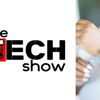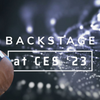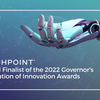South China Morning Post - How New Wellness Technology Will Help Us Lead Healthier, Stress-free Lives

How new wellness technology will help us lead healthier, stress-free lives
- Wearables that vibrate to restore calm, ‘smart, self-care lights’ and a waterbed that keeps you cool at night among the latest innovations
- Garmin vívoactive 3 GPS smartwatch and Mercedes Me app team up to reduce drivers’ heart rates – and suggest relaxing route to work
You’ve deadlines to meet, a presentation to give and a colleague is proving difficult. There’s no hope of skiving off to recalibrate the body back into calm mode.
Yet might that device on your wrist just have the answer? Or those voices in your head … courtesy of Bluetooth earbuds and a meditation app?
Few people may argue with American neuropsychologist Dr. Amy Serin, co-founder and chief science officer of biotechnology company The TouchPoint Solution – which created the “press and de-stress” TouchPoints wearables – when she says that stress is at epidemic levels in modern society.
Or, that stress – along with its evil cousins, anxiety, and depression – is possibly the biggest hindrance to overall well-being.
"Technology can and should be incorporated as part of a holistic wellness environment at home" -
However, Dr. Michael Eason, a psychologist at the Hong Kong private practice, MindnLife, believes that technology can be part of the solution.
He says that home is a perfect place to establish one’s own wellness retreat, aided by technology.
“Technology can and should be incorporated as part of a holistic wellness environment at home,” he says.
“I often remind clients that they cannot find peace or a time to unwind while living inside both a pressure cooker at work and a pressure cooker at home.
“Home should be a safe space to decompress from the stress of the day.”
Eason says the use of technology is an excellent way to help use our precious and limited “self-care” time in an efficient manner.
“I find that phone apps assisting clients to learn meditation and mindfulness skills are particularly useful, he says.
“Some of them even help those coping with insomnia and other sleep issues. Other apps help motivate them to keep achieving their exercise goals.”
The more control we have, the less stress we feel, he says.
“So, a technologically controlled home has good potential for creating a holistic and low-stress environment.
“I’ve heard many stories from my clients about how these devices can help provide them a safe harbor in the storm.”
Success certainly varies from person to person, but Eason says he is “always willing to give a new treatment method a try”.
He says: “I say if the technology exists and is effective, we should use it and use it wisely.”
"A technologically controlled home has good potential for creating a holistic and low-stress environment" -
In touch with stress relief
TouchPoints are twin neuroscientific wearables that can help to provide fast relief from stress.
They are embedded with a technology called BLAST (bilateral alternating stimulation tactile), which uses gentle, alternating micro vibrations to alter the brain’s reaction to stress – the “fight or flight” (and also “freeze”) responses – and restore calm.
The TouchPoint Solution says that physical indicators of stress, such as head or stomach aches – are also relieved with the use of the wearables.
Published research shows a 70 percent reduction in stress within 30 seconds of use., it says.
The two devices, which are worn on either side of the body, send out synchronized vibrations according to the user’s choice of intensity: yellow for calm, blue for sleep, and purple to reduce anger or irritability.
The devices don’t need to touch the skin and may be carried in pockets or socks if preferred.

A stand-alone app is available for both Android and iOS, which allows users to take a stress profile test and offers customized suggestions for TouchPoints use.
Vicki Mayo, CEO of The TouchPoint Solution, says that while the technology was originally derived from a successful treatment for post-traumatic stress disorder, executives also found it was a solution for stress reduction “that has allowed them to not only be calmer but to enhance their performance and even to sleep better at night”.
So what do users say? Reviews are mixed, with some citing “no change”, and others noting a marked improvement in mood and focus, and even – when in sleep mode – a sensation of drowsiness.
Some other people report issues with the app; others find the vibrations a bit noisy. But the overall consensus seems favorable.
A road less stressful

Meanwhile, another device – a collaboration between smartwatch maker Garmin and the German carmaker, Daimler – aims to help relieve the stress caused by the daily drive on the way to work – by offering suggestions such as alternative, less-stressful routes.
From this month, Mercedes-Benz owners have been able to pair their Garmin vívoactive 3 GPS smartwatch with the Mercedes Me mobile app to monitor their stress levels and heart rate directly from the system.
Once the information is compiled, drivers will be presented with customized recommendations for enhancing their well-being.
Drivers will have the option, for example, to select the potentially less stressful routes from the navigation system.
They also may be offered stimulating or soothing music to suit their particular mood, or be calmed by a seat massage, or even order up their preferred fragrance and ambiance lighting inside the vehicle.
Garmin says these technologies will not only benefit driver comfort and well-being but also encourage road awareness.
Bright ideas for relaxation

Another technology – but this one for use in the home – the Auri “smart self-care light” from Chinese start-up Ling Technology, purports to be “your yoga and meditation coach, your personal sleep helper”, as well as an entertainment hub.
Light-emitting diodes under the outer shell diffuser produce the intelligent lighting designed to promote a sense of calm and relaxation, which work in combination with soothing sounds to create a natural ambiance in the room.
The Auri is equipped with both Wi-fi and Bluetooth and is compatible with the cloud-based voice service, Amazon Alexa.
Late-night digital curfew

For all those people who can’t resist checking their smartphone one last time at night – a sure-fire way to disrupt sleep – the Seraphin bedside book helps remove temptation by setting a digital curfew.
Pop your devices inside, and the Seraphin turns them into a bedside lamp that delivers a light routine to help relaxation.
In the morning, it wakes users with soothing sounds, radio or podcast – and a waking light routine.
The device threatens to name and shame, by counting the number of times users reach for their phone during the night. It then delivers an analysis of their sleep quality, with recommendations for improvement.
Waterbed with a difference

With sleep, an underlying tenet of holistic wellness, beds, too, are becoming smarter to help everyone get the rest they need.
For those long hot summer nights, the Wi-fi-connected Pod from Eight Sleep, stores water within its high-density foam mattress to keep the bed’s temperature cool and comfortable.
As morning approaches, the Pod adjusts the surface temperature of the bed to wake you up gradually and naturally, without the sound of an alarm.
Hi-tech sensors track things such as sleep time and phases and report back every morning through the Eight Sleep app.
Voice-controlled bedtime concierge
Also new this year is an Alexa-powered bed from luxury Swedish bed maker, DUX, which the company says introduces the concept of a bedtime concierge.
“We know those 15 to 30 minutes right before bed are so important, as you start to unwind and get ready to sleep,” Ed Curry, president of DUX North America, says.
“Our partnership with the smart speaker company, stellé, is the first step in positioning DUX as a bedtime concierge that handles everything from dimming the lights and guiding your evening meditation, to changing the temperature for ideal sleeping conditions.”
The bed will go on sale in the US in May.
Smart technology enhances health

However, why not wrap home wellness into one convenient package?
Delos, a New York wellness property and technology company, has developed what it calls the Darwin Home Wellness Intelligence Network, which is designed to “improve health, well-being and happiness” of its occupants.
Darwin, launched initially in the US and Australia, uses proprietary software, wellness algorithms and sensor technologies to enhance energy, sleep, and overall well-being.
It also works to reduce indoor contaminants that negatively affect respiratory, cardiovascular, immune and cognitive health by monitoring and calibrating air, water, and light quality.
“[People around the world are] now spending US$4.2 trillion globally on health and wellness-focused products – from fitness apps to personal health care to nutrition programmes,” Paul Scialla, founder and CEO of Delos, says.
“Darwin is designed to empower people to be healthier, happier and more productive in their own homes by adding a layer of wellness intelligence to the smart-home landscape.”
This article first appeared in South China Morning Post on March 4, 2019 by Peta Tomlinson. To read the full article, click here.




